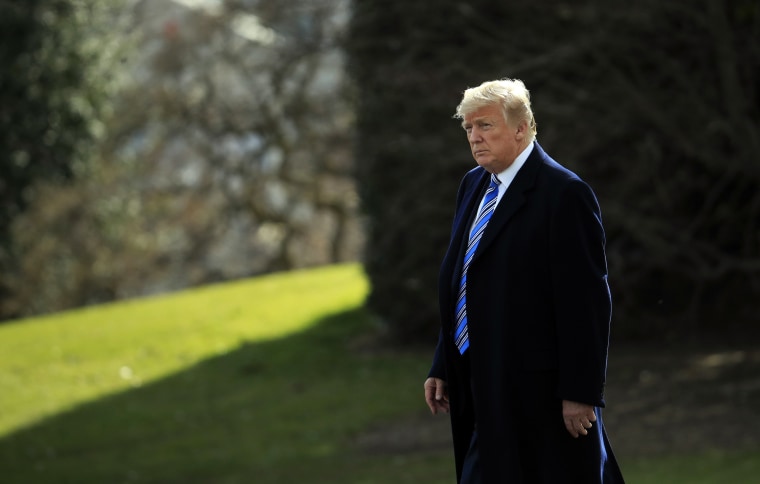As much of the world probably noticed, the U.S. House voted, with relative ease, to impeach Donald Trump last week. Just one day later, however, Bloomberg News ran a report suggesting that, as far as the White House was concerned, maybe the president wasn't actually impeached.
Lawyers close to President Donald Trump are exploring whether House Speaker Nancy Pelosi's decision to temporarily withhold articles of impeachment from the Senate could mean that the president hasn't actually been impeached. [...]The White House legal theory, according to a person familiar with the legal review, is that if Trump has been officially impeached, the Senate should already have jurisdiction. Backers of the theory would argue that the clause of the U.S. Constitution that gives the Senate "the sole Power to try all Impeachments" indicates that the impeachment isn't formalized until the House reported the charges to the upper chamber.
CBS News ran a related report over the weekend, noting, "The White House is considering making the argument that President Trump has not officially been impeached, given that House Speaker Nancy Pelosi has not transmitted the articles of impeachment to the Senate."
Noah Feldman, a Harvard law professor, has made the argument that in order for the president to have been formally impeached, the House must transmit articles of impeachment to the Senate for a trial. It's a bit like saying an NFL team didn't really win the Super Bowl when the clock hit zero at the big game, but rather, when the league gives the team the Lombardi trophy.
There are a variety of reasons to be skeptical of the pitch, not the least of which is the Constitution's language that explicitly says the U.S. House "shall have the sole Power of Impeachment."
But there's a related problem: the Trump administration may not fully believe the controversial argument. Politico reported this morning on some new legal filings from the Justice Department:
The Justice Department is arguing that the House's votes last week to impeach President Donald Trump undercut lawmakers' ongoing court case demanding testimony from former White House Counsel Don McGahn.In a brief filed early Monday morning with a federal appeals court, DOJ lawyers acknowledge that the House's approval of two articles of impeachment -- focused on Trump's alleged effort to withhold aid from Ukraine and his blockade of the House's inquiry -- do not render the legal fight over McGahn moot.However, the Justice Department attorneys said the House Judiciary Committee's decision to move forward with the impeachment vote means there's no longer urgency to resolve the House's case.
There is, of course, an ongoing dispute over McGahn's possible testimony, with House lawmakers pushing for the former White House counsel to answer lawmakers' questions, especially about revelations included in the Mueller report, and Team Trump fighting to block McGahn from having to appear before any House committee. The matter is currently before a federal appellate court.
But this morning, the Trump administration argued, in effect, that there's no rush on addressing the underlying legal question, since the House has already impeached the president, as part of the same dispute in which McGahn's testimony was sought.
Laurence Tribe, Noah Feldman's colleague at Harvard Law, noted the other day that Team Trump can't have it both ways, arguing that Trump both has and hasn't been impeached.
To be sure, we may see the administration make both arguments anyway, but it's an angle worth watching as the debate advances.
